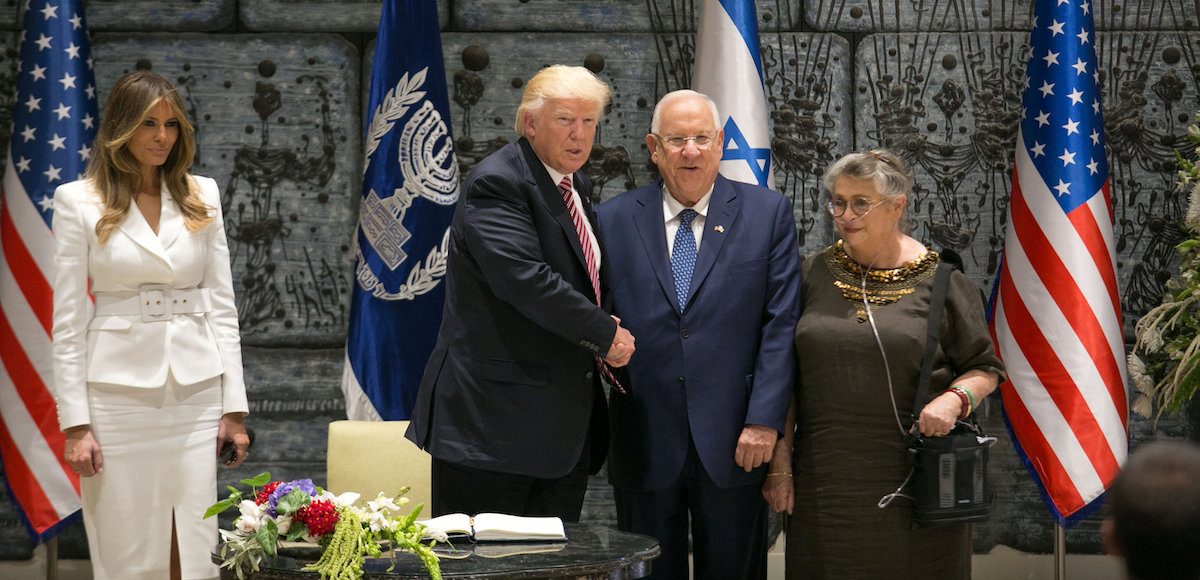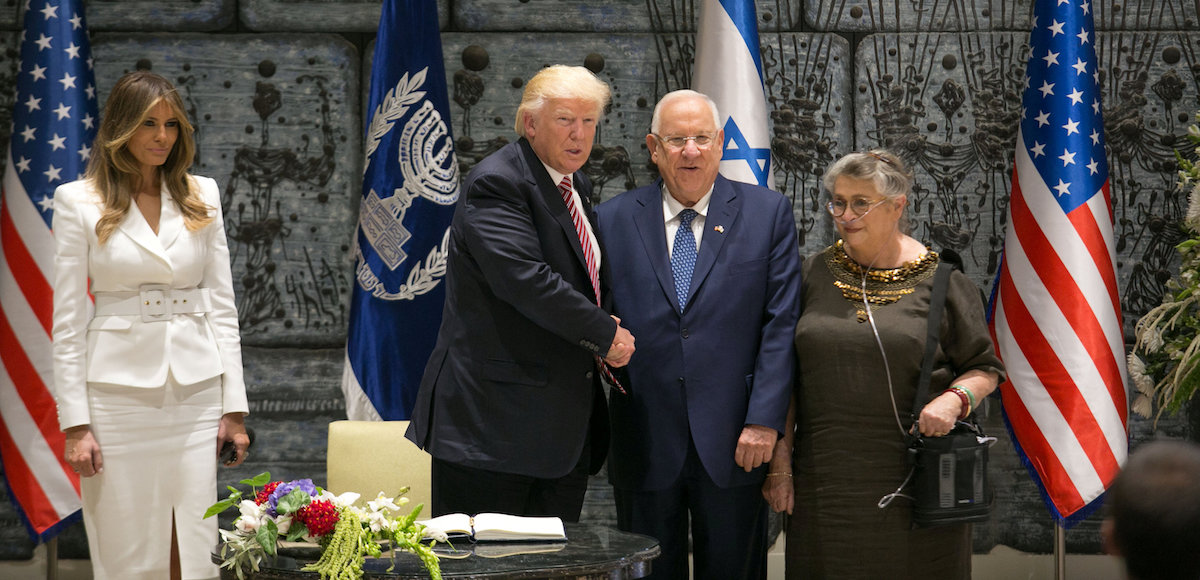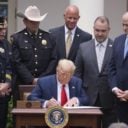

U.S. President Donald Trump (2nd L) shakes hands, after signing the guest book, with Israeli President Reuven Rivlin (2nd R) with his wife Nechama Reuven (R) and first lady Melania Trump (L), in Jerusalem May 22, 2017. (Photo: Reuters)
President Donald J. Trump on Thursday signed a waiver to delay moving the U.S. Embassy in Israel from Tel Aviv to Jerusalem. The White House says the decision is meant to “maximize the changes of successfully negotiating a deal between the Israelis and the Palestinians.”
President Trump returned from Israel last month on the second leg of his first foreign trip abroad with a renewed for peace between Israelis and Palestinians.
“While President Donald J. Trump on Thursday signed the waiver under the Jerusalem Embassy Act and delayed moving the U.S. Embassy in Israel from Tel Aviv to Jerusalem, no one should consider this step to be in any way a retreat from the President’s strong support for Israel and for the United States-Israel alliance,” White House Press Secretary Sean Spicer said.
In addition to resuming talks between Israel and the Palestinians, the President discussed Israeli settlements in the West Bank and moving the U.S. Embassy from Tel Aviv to Jerusalem with Prime Minister Benjamin Netanyahu and President Reuven Rivlin. Eventually making the move would not only fulfill a campaign promise, but also a 21-year old promise to the Israelis.
In 1995, Congress passed The Jerusalem Embassy and Relocation Act, which recognized Jerusalem as the capital of Israel and called for moving the U.S. Embassy from Tel Aviv to Jerusalem. Waivers are permitted by presidents in the event national security is a concern.
“President Trump made the decision to maximize the changes of successfully negotiating a deal between the Israelis and the Palestinians, fulfilling his solemn promise to defend America’s national security interests,” Mr. Spicer added. “But, as he has repeatedly stated his intention to move the embassy, the question is not if that happens, but when.”







